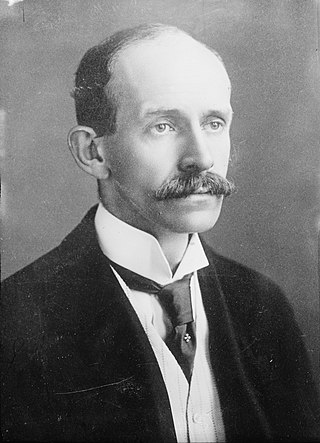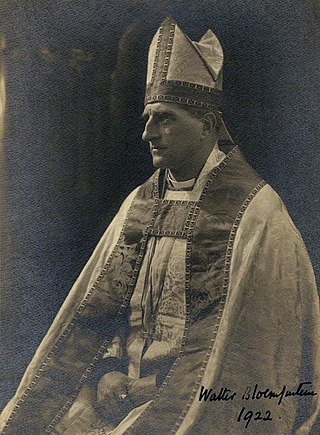Related Research Articles

The Union of South Africa was the historical predecessor to the present-day Republic of South Africa. It came into existence on 31 May 1910 with the unification of the Cape, Natal, Transvaal, and Orange River colonies. It included the territories that were formerly a part of the South African Republic and the Orange Free State.

Basutoland was a British Crown colony that existed from 1884 to 1966 in present-day Lesotho, bordered with the Cape Colony, Natal Colony and Orange River Colony until 1910 and completely surrounded by South Africa from 1910. Though the Basotho and their territory had been under British control starting in 1868, the Cape Colony was unpopular and unable to control the territory. As a result, Basutoland was brought under direct authority of Queen Victoria, via the High Commissioner, and run by an Executive Council presided over by a series of British Resident Commissioners.

The Orange Free State was an independent Boer sovereign republic under British suzerainty in Southern Africa during the second half of the 19th century, which ceased to exist after it was defeated and surrendered to the British Empire at the end of the Second Boer War in 1902. It is one of the three historical precursors to the present-day Free State province.

Ernest William Barnes was a British mathematician and scientist who later became a liberal theologian and bishop.

Hugh Richard Heathcote Gascoyne-Cecil, 1st Baron Quickswood PC, styled Lord Hugh Cecil until 1941, was a British Conservative Party politician.
Nelson Wellesley Fogarty (1871–1933) was the first Anglican Bishop of Damaraland (Namibia) from 1924 to 1933.
Events from the year 1843 in the United Kingdom.
Bishop Adam Bellenden was a 17th-century Scottish churchman serving the Church of Scotland and rising to be Bishop of Aberdeen.
The Diocese of Kimberley and Kuruman is a diocese in the Anglican Church of Southern Africa, and encompasses the area around Kimberley and Kuruman and overlaps the Northern Cape Province and North West Province of South Africa. It is presided over by the Bishop of Kimberley and Kuruman, until recently Ossie Swartz. On 19 September 2021 the Electoral College of Bishops elected to translate the Right Revd Brian Marajh of George to become the 13th Bishop of Kimberley & Kuruman. The seat of the Bishop of Kimberley and Kuruman is at St Cyprian's Cathedral, Kimberley. There had been so far 12 bishops of the See, though one of these served for two different periods of time.
The Diocese of the Free State is a diocese in the Anglican Church of Southern Africa.
Eric Joseph Trapp was an Anglican bishop in the mid-20th century.

The Cathedral Church of St Cyprian the Martyr, Kimberley, is the seat of the Bishop of the Kimberley and Kuruman, Anglican Church of Southern Africa. The building was dedicated in 1908, becoming a Cathedral when the Synod of Bishops mandated formation of the new Diocese of Kimberley and Kuruman in October 1911. The first Bishop, the Rt Revd Wilfrid Gore Browne, was enthroned there on 30 June 1912.
Neville Arthur Blachley Borton, M.A. was the second rector of St Cyprian's Church, Kimberley, South Africa, serving from 1876–77, being successor to Fr John Witherston Rickards. He afterwards ran a small church school at St Mary's Barkly West, was appointed principal of St Andrew's, Bloemfontein, and subsequently Vicar of Burwell, Cambridge, where he served until 1920.
Charles Bulmer Maude was an Anglican priest in the last third of the nineteenth century and the first third of the twentieth.

The Rt Revd Walter Julius Carey was an English Anglican clergyman and author who served as Bishop of Bloemfontein in South Africa from 1921 to 1935. Carey was a rugby union forward who played club rugby for Oxford University and Blackheath and played international rugby for the British Isles XV in their 1896 tour of South Africa.
Arthur Henry Howe Browne was Bishop of Bloemfontein from 1935 to 1951. He was educated at Winchester and Balliol, and ordained in 1906 after a period of study at Cuddesdon. He began his career with curacies in Witney and East Dulwich. From 1909 to 1916 he was Vicar of St John the Baptist, Kensington. From 1921-1934 he was vicar of St John the Divine Kennington and also Chaplain to St Gabriels College Camberwell During this time he was Rural Dean of Kennington and a Canon of Southwark until his appointment to the Episcopate. After retirement he lived in Rondebosch until his death.
Cecil William Alderson was a British-born Anglican Bishop of (successively) Damaraland, Bloemfontein, and Mashonaland.
William Edmund Smyth (1858–1950) was an Anglican bishop in the last decade of the nineteenth century and the first two of the twentieth.
William Andrewes Fearon was an Anglican priest.
William Haye Weekes was Dean of Bloemfontein in South Africa from 1922 to 1940.
References
- ↑ Bishop Balfour. The Times (London, England), Tuesday, 5 February 1924; pg. 12; Issue 43567
- ↑ Crockford's Clerical Directory 1908 p64: London, Horace Cox, 1908
- ↑ "Balfour, Francis Richard Townley" . Who's Who & Who Was Who . Vol. 1920–2016 (2 March 2018 online ed.). A & C Black. Retrieved 2 March 2018.(Subscription or UK public library membership required.)